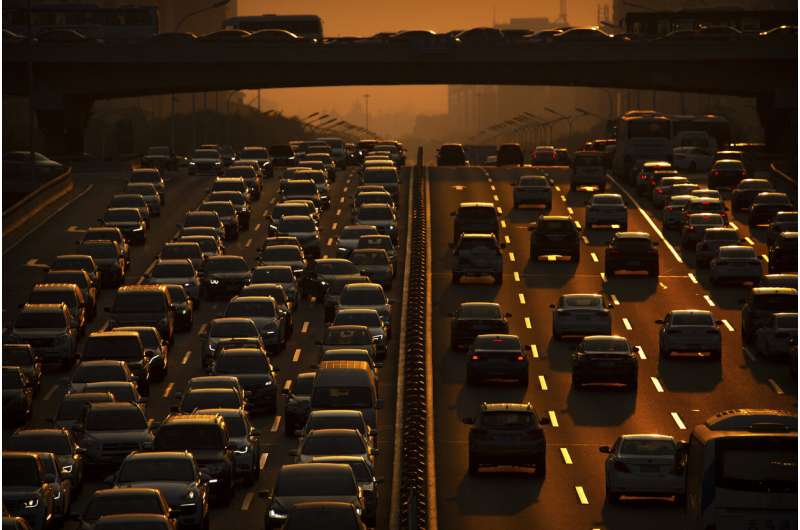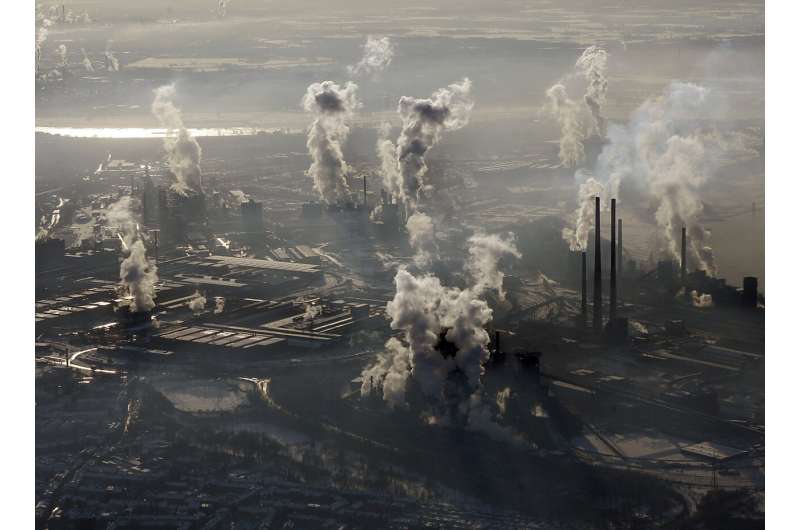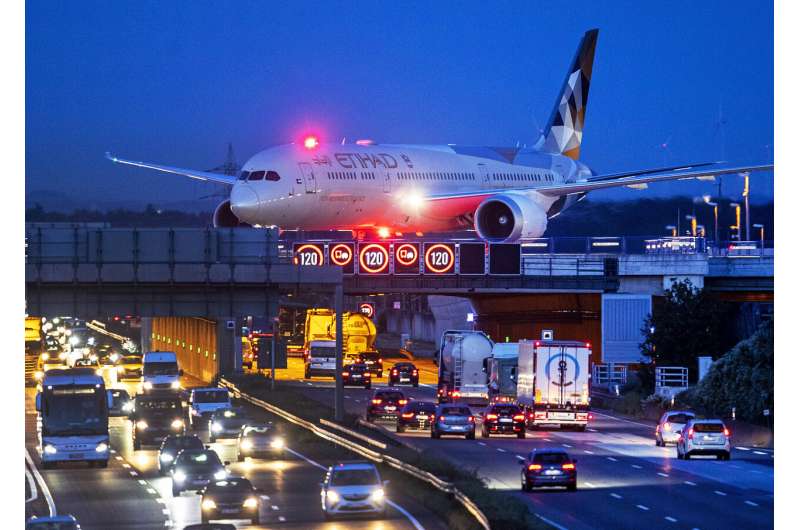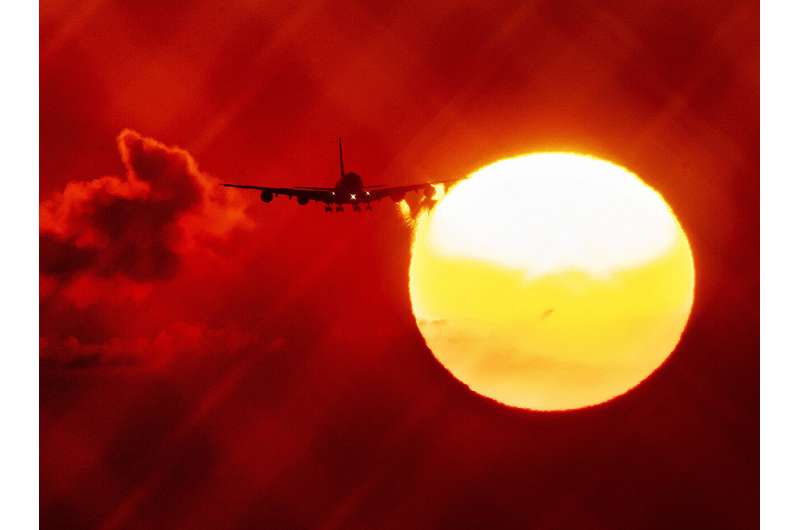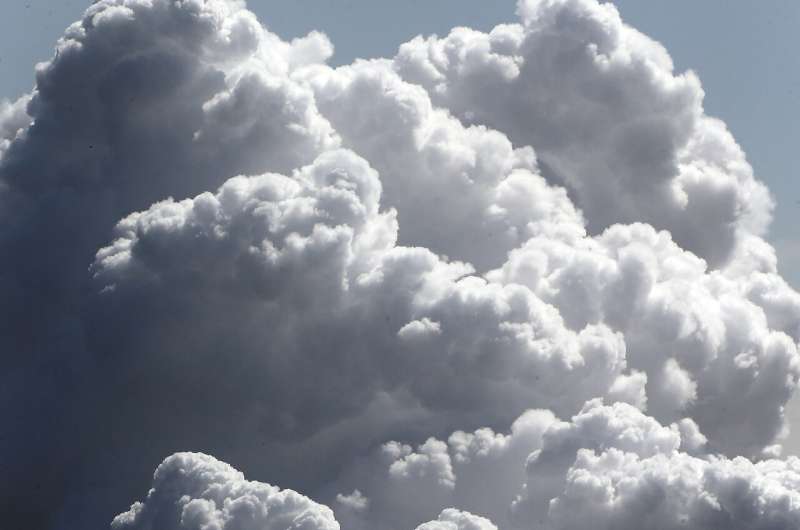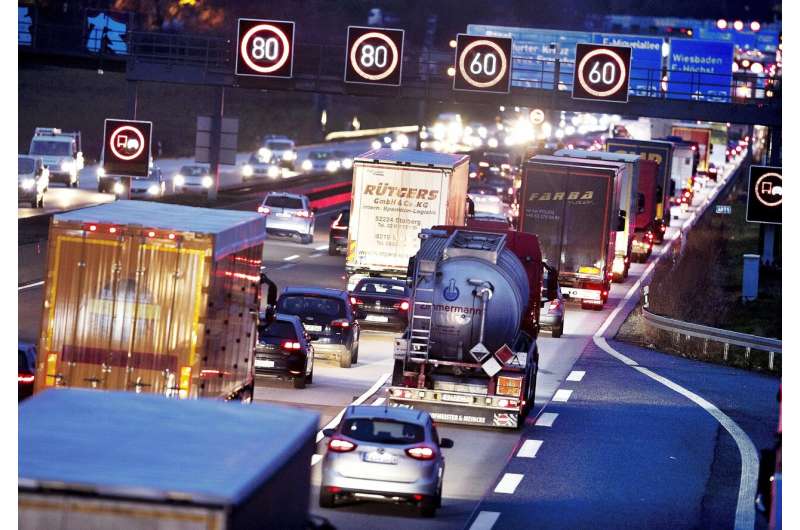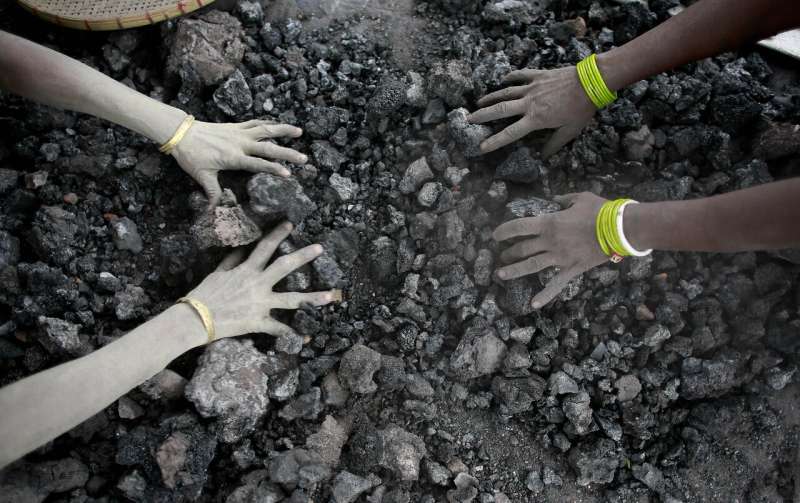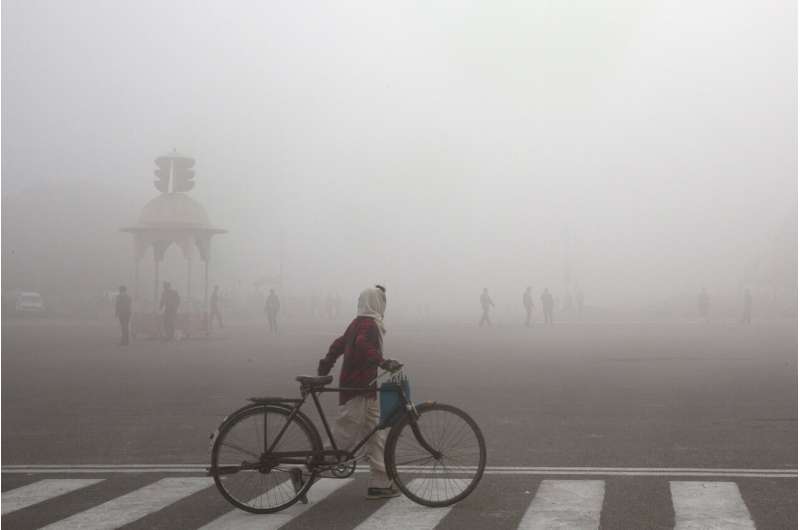In this Friday, Sept. 6, 2019 file photo, commuters make their way along an expressway during rush hour in Beijing. According to Chinese state media, the average concentration of PM2.5 fine air pollutants in Beijing in August was at the lowest level ever recorded for that month. Inger Andersen, head of the U.N. Environment Program, says the world needs 'quick wins to reduce emissions as much as possible in 2020.' Ahead of a global climate summit in Madrid next week, her agency published a report Tuesday showing the amount of planet-heating gases released into the atmosphere hitting a new high last year. (AP Photo/Mark Schiefelbein, file)
Countries have procrastinated for too long and need to begin making steep cuts to their greenhouse gas emissions immediately, or risk missing agreed targets for limiting global warming, a senior United Nations official said Tuesday.
The appeal by Inger Andersen, who heads the U.N. Environment Program, came days before governments gather in Madrid for an annual climate change meeting.
"We need quick wins to reduce emissions as much as possible in 2020," Andersen said, as her agency published its annual 'emissions gap' report showing the amount of planet-heating gases being pumped into the atmosphere hitting a new high last year, despite a near-global pledge to reduce them.
Over the coming decade, worldwide emissions of carbon dioxide, methane and other greenhouse gases will have to drop more than 7% each year to stop average global temperatures from increasing by more than 1.5 degrees Celsius (2.7 Fahrenheit) this century compared with pre-industrial times, the agency said. Scientists say that target—contained in the 2015 Paris climate accord—would prevent many of the more dramatic consequences of global warming.
Even the less ambitious goal of capping global warming at 2C (3.6 F) would require annual emissions cuts of 2.7% between 2020 and 2030, the agency said.
In this Jan. 9, 2009 file photo is an aerial view of the steel company ThyssenKrupp in Duisburg, western Germany. Inger Andersen, head of the U.N. Environment Program, says the world needs 'quick wins to reduce emissions as much as possible in 2020.' Ahead of a global climate summit in Madrid next week, her agency published a report Tuesday showing the amount of planet-heating gases released into the atmosphere hitting a new high last year.(AP Photo/Frank Augstein,file)
"We need to catch up on the years in which we procrastinated," said Andersen. "If we don't do this, the 1.5C goal will be out of reach before 2030."
As part of the Paris Agreement, countries agreed to review their efforts for cutting greenhouse gases by 2020.
Current national pledges would leave the world 3.2 degrees Celsius (5.8 Fahrenheit) warmer by 2100 than pre-industrial times, with dramatic consequences for life on Earth, the U.N. agency said, adding that getting the world back on track to 1.5 C would require a fivefold increase in measures pledged so far.
"Major societal and economic transformations need to take place in the next decade to make up for the inaction of the past," it said, adding that these measures would need to include ending the use of fossil fuels in the energy, building and transport sectors.
In this Friday, Sept. 20, 2019 an aircraft crosses a bridge over a highway the airport in Frankfurt, Germany. Inger Andersen, head of the U.N. Environment Program, says the world needs 'quick wins to reduce emissions as much as possible in 2020.' Ahead of a global climate summit in Madrid next week, her agency published a report Tuesday showing the amount of planet-heating gases released into the atmosphere hitting a new high last year. (AP Photo/Michael Probst, File)
Last week, the U.N. agency published a separate report which found that countries are planning to extract more than twice the amount of fossil fuels from the ground than can be burned in 2030 if the 1.5C target is to be met.
"(What) countries are saying about supply doesn't match up with what they're saying about reducing emissions," said the report's co-author Michael Lazarus, a senior scientist at the Stockholm Environment Institute.
This includes countries like the United States which, despite announcing its withdrawal from the Paris accord, claims to be reducing emissions even as it expands oil and gas production. But it also holds true for countries that tout their green credentials, such as Norway, which continues to drill for oil in the North Sea.
Experts agree that the longer countries continue burning fossil fuels, the more warming will be "locked in" as emissions stay in the atmosphere for years or even decades.
-
In this Wednesday, Aug. 21, 2019 file photo, an aircraft passes the rising sun as it approaches the airport in Frankfurt, Germany. Inger Andersen, head of the U.N. Environment Program, says the world needs 'quick wins to reduce emissions as much as possible in 2020.' Ahead of a global climate summit in Madrid next week, her agency published a report Tuesday showing the amount of planet-heating gases released into the atmosphere hitting a new high last year. (AP Photo/Michael Probst, File)
-
In this Monday, May 27, 2013 file photo, steam of a furnace pollutes the sky in Duisburg, Germany. Inger Andersen, head of the U.N. Environment Program, says the world needs 'quick wins to reduce emissions as much as possible in 2020.' Ahead of a global climate summit in Madrid next week, her agency published a report Tuesday showing the amount of planet-heating gases released into the atmosphere hitting a new high last year. (AP Photo/Frank Augstein)
-
In this Tuesday, Dec. 4, 2018 file photo, Trucks line up on a highway in Frankfurt, Germany. Inger Andersen, head of the U.N. Environment Program, says the world needs 'quick wins to reduce emissions as much as possible in 2020.' Ahead of a global climate summit in Madrid next week, her agency published a report Tuesday showing the amount of planet-heating gases released into the atmosphere hitting a new high last year. (AP Photo/Michael Probst, file)
-
In this Monday, Dec. 14, 2015, file photo, Indian women use bare hands to pick reusable pieces from heaps of used coal discarded by a carbon factory in Gauhati, India. Inger Andersen, head of the U.N. Environment Program, says the world needs 'quick wins to reduce emissions as much as possible in 2020.' Ahead of a global climate summit in Madrid next week, her agency published a report Tuesday showing the amount of planet-heating gases released into the atmosphere hitting a new high last year. (AP Photo/ Anupam Nath, File)
-
This Jan. 18, 2019 file photo shows a cyclist amidst morning smog in New Delhi, India. Beth Gardiner's new book "Choked" documents how air pollution is responsible for seven million premature deaths around the world. Inger Andersen, head of the U.N. Environment Program, says the world needs 'quick wins to reduce emissions as much as possible in 2020.' Ahead of a global climate summit in Madrid next week, her agency published a report Tuesday showing the amount of planet-heating gases released into the atmosphere hitting a new high last year. (AP Photo/Manish Swarup, File)
Conversely, the sooner countries take steps to wean themselves off gas, coal and oil—such as by ending government subsidies for fossil fuels—the more warming will be prevented in the long term.
"If you're in a hole, you should start to stop digging," said Niklas Hagelberg of the U.N. Environment Program.
© 2019 The Associated Press. All rights reserved.
